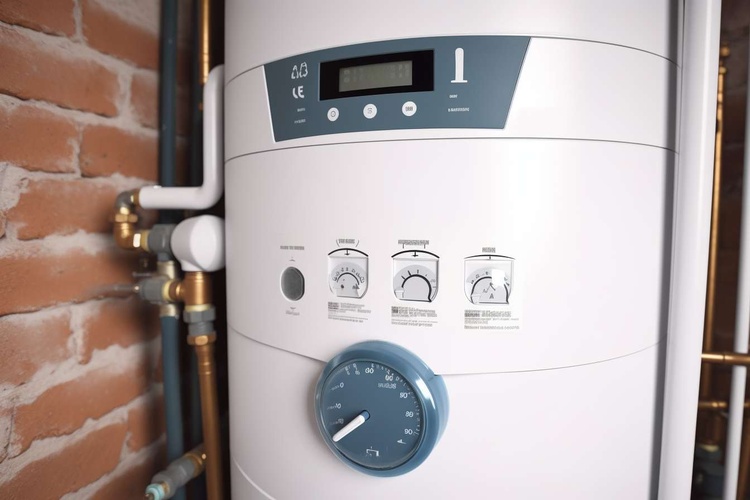Discover How Boiler Replacement Grants May Help Brits Get New Boilers
Boiler replacement grants provide vital financial support to UK homeowners and small businesses, easing the burden of upgrading to energy-efficient systems. With schemes like the Boiler Upgrade Scheme offering substantial grants, these initiatives promote the adoption of low-carbon heating technologies. Exploring eligibility, application processes, and additional support options reveals extensive opportunities for energy savings and sustainability.

Understanding Boiler Replacement Grants in the UK
Boiler replacement grants are government-backed initiatives designed to help households replace old, inefficient boilers with modern, energy-efficient alternatives. These grants typically target low-income families, vulnerable individuals, and those living in properties with poor energy performance ratings. The primary objective is to tackle fuel poverty while supporting the UK’s commitment to reducing carbon emissions and achieving net-zero targets.
Several schemes operate across the UK, including the Energy Company Obligation (ECO) scheme, which requires larger energy suppliers to fund energy efficiency improvements for eligible households. Local authorities may also offer additional support through regional programmes. Understanding which grants you might qualify for requires examining your household income, property type, and existing heating system.
The availability of these grants can vary depending on your location within the UK and the specific criteria set by administering bodies. Some schemes focus exclusively on replacing gas boilers with low-carbon alternatives, while others may cover repairs or upgrades to existing systems. Researching the options available in your area is an essential first step toward accessing financial support.
Eligibility Criteria for Boiler Grants
Eligibility for boiler replacement grants depends on multiple factors, and not all households will qualify. Most schemes prioritize those receiving certain benefits, such as Universal Credit, Pension Credit, Income Support, or Child Tax Credits. Homeowners and private tenants may be eligible, though landlords typically need tenant consent and must meet specific conditions.
Property characteristics also play a significant role in determining eligibility. Homes with an Energy Performance Certificate (EPC) rating of D, E, F, or G are often prioritized, as these properties would benefit most from efficiency improvements. Additionally, the existing boiler must usually be at least 10 to 15 years old or deemed inefficient by current standards.
Some grants require applicants to demonstrate that their current heating system is broken beyond economical repair or poses safety risks. Medical conditions that make individuals particularly vulnerable to cold temperatures can also strengthen an application. It is important to gather relevant documentation, including proof of benefits, property ownership or tenancy agreements, and recent energy bills, before applying.
The Role of the Boiler Upgrade Scheme
The Boiler Upgrade Scheme (BUS) represents a key government initiative aimed at encouraging the adoption of low-carbon heating technologies. Launched to support the transition away from fossil fuel heating, the scheme provides grants to help cover the upfront costs of installing heat pumps and biomass boilers. Unlike some other programmes, the BUS is not means-tested, making it accessible to a broader range of households.
Under this scheme, homeowners in England and Wales can receive financial support toward the installation of air source heat pumps, ground source heat pumps, or biomass boilers. The grant amounts are designed to reduce the price gap between these renewable systems and traditional gas boilers, making greener options more financially viable.
While the Boiler Upgrade Scheme does not cover conventional gas boiler replacements, it plays a crucial role in the wider landscape of heating support by promoting sustainable alternatives. Households interested in reducing their carbon footprint while benefiting from long-term energy savings should consider whether this scheme aligns with their heating needs and property suitability.
Application Process and Installation
Applying for a boiler replacement grant typically involves several steps, beginning with determining your eligibility through an online checker or by contacting a participating energy supplier or local authority. Many schemes require applicants to work with accredited installers who are registered with relevant certification bodies, such as Gas Safe Register or the Microgeneration Certification Scheme (MCS).
Once eligibility is confirmed, an approved installer will conduct a home survey to assess your property’s heating requirements and recommend suitable replacement options. This survey ensures that the new system will be appropriately sized and installed to maximize efficiency and performance. The installer will then submit the necessary paperwork on your behalf to secure grant funding.
Installation timescales vary depending on the complexity of the work and the availability of approved contractors in your area. Standard gas boiler replacements may take one to two days, while heat pump installations can require more extensive modifications to heating systems and property infrastructure. After installation, you should receive documentation certifying the work and any applicable warranties.
Cost Considerations and Financial Support
The cost of replacing a boiler without grant assistance can be substantial, with prices varying based on system type, property size, and installation complexity. Standard gas boiler replacements typically range from £1,500 to £3,500, depending on the model and any additional work required. Heat pumps, while offering long-term savings, involve higher upfront costs, often between £7,000 and £13,000 before grant deductions.
Grant support can significantly reduce these expenses. The ECO scheme may cover the full cost of a replacement boiler for eligible households, while the Boiler Upgrade Scheme offers fixed grants of £5,000 for air source heat pumps and £6,000 for ground source heat pumps or biomass boilers. These amounts are deducted from the total installation cost, with homeowners responsible for any remaining balance.
| System Type | Typical Cost Range | Available Grant Support | Estimated Out-of-Pocket Cost |
|---|---|---|---|
| Gas Boiler Replacement | £1,500 - £3,500 | Up to full cost (ECO) | £0 - £3,500 |
| Air Source Heat Pump | £7,000 - £11,000 | £5,000 (BUS) | £2,000 - £6,000 |
| Ground Source Heat Pump | £10,000 - £18,000 | £6,000 (BUS) | £4,000 - £12,000 |
| Biomass Boiler | £9,000 - £15,000 | £6,000 (BUS) | £3,000 - £9,000 |
Prices, rates, or cost estimates mentioned in this article are based on the latest available information but may change over time. Independent research is advised before making financial decisions.
Why You Should Learn More About Boiler Replacement Grants Today
Exploring boiler replacement grants can lead to substantial financial savings and improved home comfort. With energy costs remaining a concern for many households, upgrading to a more efficient heating system can reduce monthly bills while ensuring reliable warmth throughout the year. Grants remove or reduce the financial barrier that often prevents families from making necessary improvements.
Beyond personal benefits, participating in these schemes contributes to broader environmental goals. Replacing inefficient boilers with modern alternatives reduces carbon emissions and helps the UK progress toward its climate commitments. Every household that upgrades its heating system plays a part in creating a more sustainable future.
Grant availability and eligibility criteria can change as government priorities shift and funding allocates. Acting sooner rather than later ensures you do not miss opportunities for support. Researching your options, checking eligibility, and consulting with accredited installers are practical steps toward securing a warmer, more energy-efficient home at reduced or no cost.
Understanding the landscape of boiler replacement grants empowers you to make informed decisions about your home’s heating needs. Whether you qualify for full funding through the ECO scheme or wish to explore low-carbon alternatives via the Boiler Upgrade Scheme, taking the time to investigate available support can yield significant benefits for your household and the environment.




